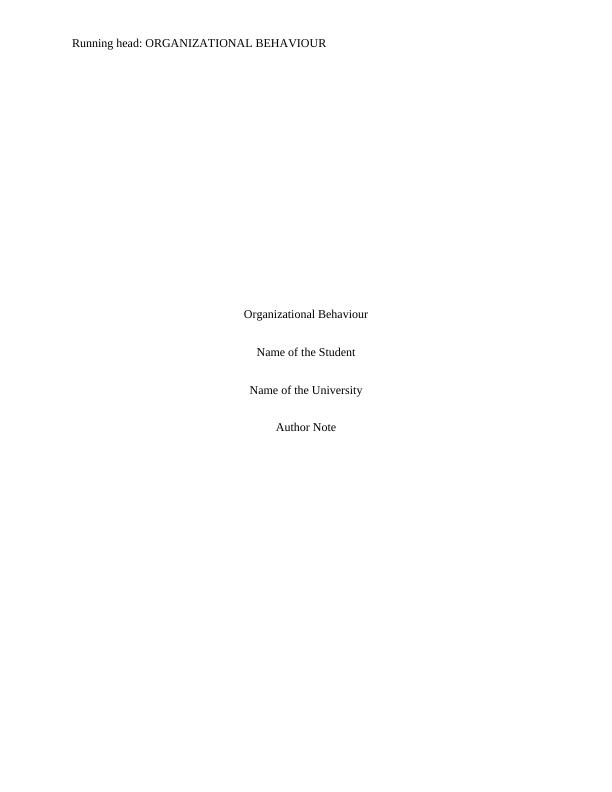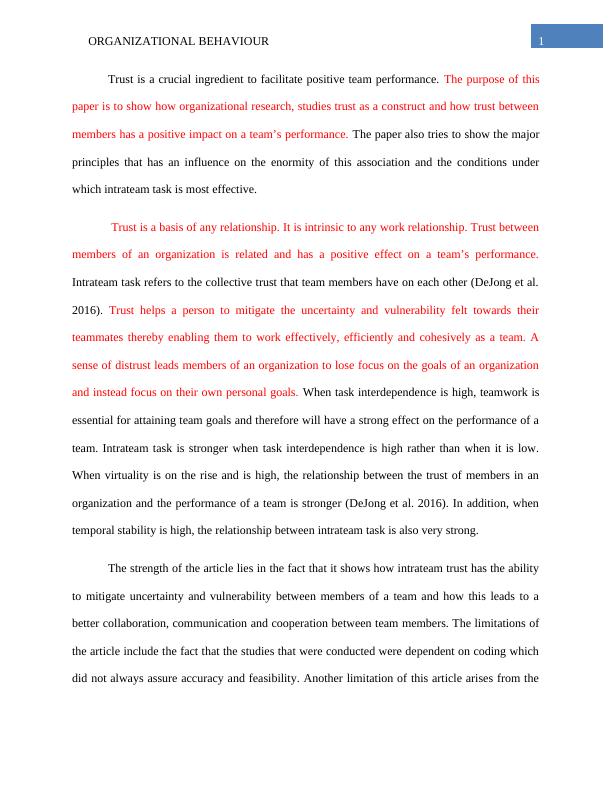Trust and Team Performance: A Meta-Analysis of Main Effects, Moderators, and Covariates
Cumulating evidence from 112 independent studies, this meta-analysis examines the relationship between intrateam trust and team performance, as well as the conditions under which it is particularly important.
4 Pages525 Words79 Views
Added on 2023-06-04
About This Document
This paper discusses how trust between members has a positive impact on a team’s performance. It also shows the major principles that have an influence on the enormity of this association and the conditions under which intrateam task is most effective.
Trust and Team Performance: A Meta-Analysis of Main Effects, Moderators, and Covariates
Cumulating evidence from 112 independent studies, this meta-analysis examines the relationship between intrateam trust and team performance, as well as the conditions under which it is particularly important.
Added on 2023-06-04
ShareRelated Documents
End of preview
Want to access all the pages? Upload your documents or become a member.
Role of Teamwork in Organisational Performance - Annotated Bibliography
|7
|1376
|117
Annotated Bibliography: Emotional Intelligence
|12
|2941
|339
Assignment: Hofstede’s Cultural Dimensions
|6
|1337
|67
Skewed Task Conflict in Teams
|13
|2775
|166
PH311 Employee Law and Relations
|15
|3294
|54
Culture Alignment: Importance of Culture Fit in Organizations
|4
|624
|282


